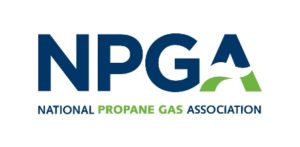Women in Propane: Focus on Mentoring
The Knowledge Exchange, a mentoring program run by the NPGA Women in Propane Council, is entering its third year.
Mentors are industry veterans who volunteer their time.
“They’re basically donating their time to help with the development of fellow employees within the industry,” Jennifer Jackson, a vice president for Thompson Gas in Boonsboro, Md., said. Jackson is the project manager of The Knowledge Exchange.
The program runs from May through October. Mentees pay a $250 fee for the mentoring they receive over the six months. The fees go to the WIP Council to cover the costs of providing the program and materials. The program covers 48 subjects or areas.
Those who want to register to mentor or be mentored can do so at the NPGA website, NPGA.org. Select “NPGA Events,” and click on 2018 Mentor Scout WIP Knowledge Exchange.
Approximately 75 people participated in 2017, Jackson said.
Ideally, people switch back and forth, being a mentor or mentee one year, and being the other the next, Jackson said.
“You choose each year which one you want to do, and of course the years you choose to be a mentor it doesn’t cost you anything,” Jackson said. “I went through the first year as a mentor. The second year I switched over to being a mentee so I could get some mentoring. We have a lot of people that do that.”
After launching The Knowledge Exchange as a pilot program in 2016, the Women in Propane Council conducted it again in 2017, and some 75 people participated, Johnson said.
Anyone who’s a member of NPGA can participate,” Jackson said. “You don’t have to work for a propane company. We have participants from some of the vendors.”
Typically, mentoring sessions are an hour long, once or twice a month, Jackson said. If the participants are not able to meet in person, they hold the sessions over the phone or Skype. Some meet every week.
“I did an hour every two weeks, but in the evening because I didn’t have time during the work day,” Jackson said.
“The gist of it is the mentees run the program and decide what it is they want to work on,” Jackson said.
“The mentors, when they go in and set up their profile in our system, choose the areas that they would like to be mentored on if they were to be a mentee,” Jackson said. “And they choose areas that they feel they have expertise in to mentor another person.” Likewise, the mentees choose the areas in which they feel they could use some mentoring. “That way, when the system does the matching, it’s matching mentees with mentors in that field of expertise that they’re looking for—to make sure that it’s a good match.”—Stephen Bennett
